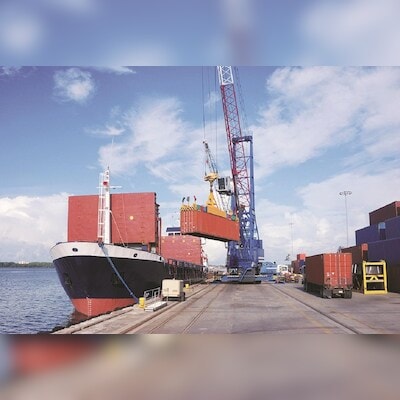Centre releases draft guidelines on deregulating PPP port tariffs | News

Amid long-standing calls by private port players to bring parity between recent winners of public-private-partnership (PPP) projects at major ports and players with older contracts, the Centre has released draft guidelines for tariff migration, allowing concessionaires to switch to a market-based tariff regime.
“In the past, tariffs were regulated due to a limited competitive landscape, but the evolving market and competitive landscape necessitates deregulation. The original objective of introducing the tariff regulations in 2005 included safeguarding the interest of users, while ensuring fair returns to the port and encouraging competition and efficiency. The long-term objective outlined in the Tariff Guidelines 2005 was competitive pricing. The market and competitive landscape in the Indian port sector have since witnessed a significant shift,” the shipping ministry said in the draft guidelines.
Currently, tariffs for private operators at central government ports are regulated under three separate regimes — Tariff Guidelines 2005 (superseded by Tariff Guidelines 2019), Tariff Guidelines 2008, and those of 2013.
The draft guidelines will allow PPP players to fix their own scale of rates (SOR) and will require them to sign a supplementary agreement.
Previously, the major port authorities were both service providers to end users and the concessioning authority. Thus, the tariff regulations played an important role in safeguarding the interests of both port users and PPP operators.
According to the Centre, with the transition to the landlord port model and increased private sector participation, the utility of tariff regulations (and fixation) in this context has diminished.
Several PPP operators had also raised concerns with the ministry in the past, stating they were at a disadvantage compared to fully private ports, as there was no parity in tariff fixation, making PPP projects less desirable.
While the new regulations allow pricing freedom, they will not hinder government revenues earned from these PPP projects, as there will be no change in royalty.
“As an additional measure, the royalty as revenue share of the major port should/would not go below what it would have got under the regime when the tariff was fixed/determined as per the Tariff Guidelines. This would be done by converting the revenue share to royalty based on the annual revenue requirement of the project as determined earlier,” the draft guidelines said.
The government has invited stakeholders to send their inputs by 25 October.
First Published: Oct 03 2024 | 8:17 PM IST




